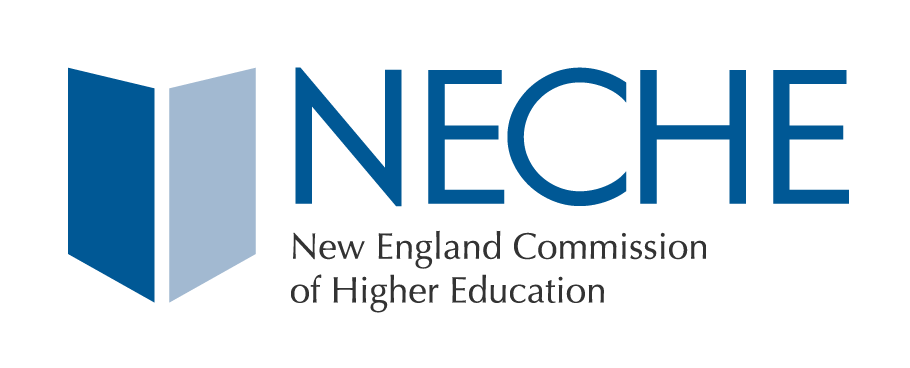
Growing up in Delaware, I was always intrigued by the state of Rhode Island for what should be an obvious reason: It’s the only state smaller than the Blue Hen State. This past week, it was my pleasure to visit six of the thirteen institutions that NECHE accredits in the Ocean State.

The first stop was Rhode Island College (RIC), the first public higher education institute in the state, and the second oldest college in RI, founded in 1854 just after Brown University. RIC is home to 7,000 students, forty percent of whom are first-generation college students.
I met President Frank Sánchez in his office and before he led me on a tour of his beautiful campus, we were able to have a terrific conversation about his path to RIC and his aspirations for the college. Among the highest of his priorities, since arriving six years ago, was an ambitious rebuild of the college’s physical plant, and he is well on his way to making that happen. To date, Dr. Sanchez has completed or secured $113 million in capital improvements for Rhode Island College. In touring several of the buildings which benefited from those funds, I can attest the dollars have been very well spent.




Pre-COVID, only a handful of classes were being taught online; today that number is about twenty-five percent and given RIC’s mission of serving working adults, Dr. Sánchez believes that number needs to climb a bit higher. Two fully online BA programs have already been introduced.

Dr. Sánchez’s story is a fascinating one, a true American Dream tale. His mother came to America to work in the farm fields of Colorado, then married Frank’s father. Frank’s dad was able to attend college, thanks to his athletic prowess (he was a champion wrestler, a talent he shared with Frank) and after completing his education eventually became a school principal in Wyoming, where Frank and his eight siblings were raised. Clearly, the education business is in Frank’s genes, but he also shared the story of how higher education administration became his life’s passion. While in college at the University of Nebraska, Frank served as President of the Mexican-American Student Association and led a group of students in protest to the president of his institution. The activists had a five-point agenda, well-conceived and well presented, but they were summarily brushed aside. Sanchez was not deterred by the administration’s tepid response; he committed himself, then and there, to be a better kind of leader in higher education — perhaps inspired by sharing his tiny apartment on campus one night with the great labor advocate Cesar Chavez.

Dr. Sánchez’s path to Rhode Island College was circuitous but highly impressive, working at Adams State College in Colorado, the University of Colorado/Denver, and the Anschutz Medical Center, then as the Vice-Chancellor for Student Affairs at the City University of New York (CUNY), the largest urban public university in the country with a half-million students, where he oversaw twenty-four Vice-Presidents of Student Affairs on the two dozen CUNY campuses. (I am getting a headache just imagining the complexity of that job).



By chance, a visiting team from NECHE will arrive on Rhode Island College’s campus this week for the ten-year comprehensive evaluation. (The onset of the pandemic delayed this visit by a full year.) Our team will hear from a man who couldn’t be prouder of his institution: the first Hispanic-serving public institution in the region, and the second-ranked school in New England in terms of the social mobility of its students. Even with fifty percent of RIC students being Pell-eligible, ninety percent will participate in some form of experiential learning, internship, practicum, senior capstone project, undergraduate research, or study abroad before graduation.

Rhode Island College certainly has a lot to be proud of, and I’m sure our NECHE team will be greeted with incredible enthusiasm and hospitality. You’ll enjoy my interview with Dr. Sánchez below.

